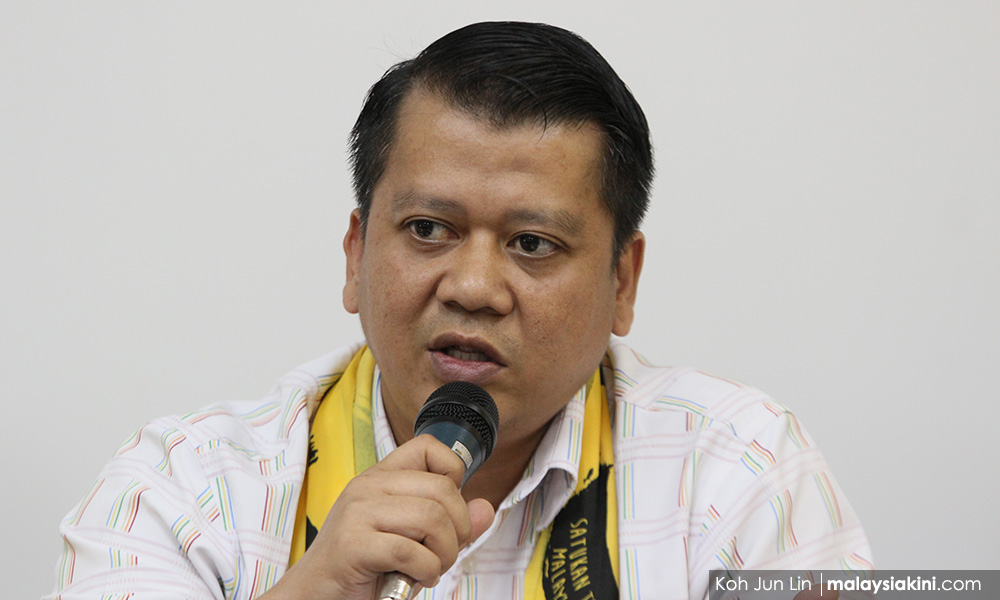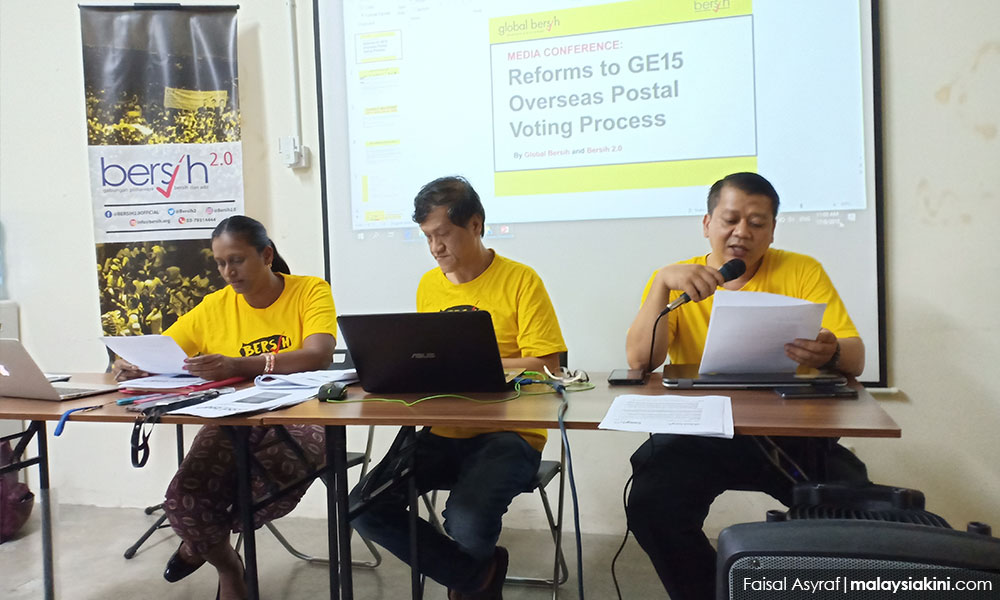
Electoral watchdog Bersih 2.0 and its overseas arm Global Bersih have called for the voting process for overseas Malaysians to be revamped, citing the alleged failure of the Election Commission (EC) to manage the existing process for the 14th general election.
Both organisations held a press conference today to announce findings from a post-GE14 survey conducted by Global Bersih, which included the EC’s lack of adequate and timely information on the registration and voting process, as well as an illogical and impractical timeline for overseas voting.
Bersih 2.0 acting chairperson Shahrul Aman Mohd Saari said, "The information from authorities was confused, conflicted, and varied from agency to agency."
Due to that, the NGO is planning to meet with the EC to discuss possible reforms, which will include implementing automatic voter registration, lowering the voting age to 18, a minimum campaigning period of 28 to 30 days, and standardising the system for overseas voters on an ongoing basis.
However, they have yet to set a meeting date with the EC.
Shahrul said the EC has a huge responsibility to reach Malaysians living abroad and ensure that they can vote.
"According to EC, only 7,979 Malaysian citizens abroad applied to vote. But the United Nations estimates that the number of Malaysians living abroad is 2.7 million in 2017.
"The difference is glaring. The EC must do something to reach and help them."

Bersih Germany coordinator Nirmala Devi Windgatter said that the campaign period of 28 to 30 days (between the nomination day and the election date) would facilitate a smoother process for voters to receive their ballot papers and send them back home, as well as save them money when mailing back their papers.
"The EC should simplify the process. When ballot papers reached within a short period before the voting day, voters were racing against time and had to fork out about 80 (British) pounds to post them back home. That's a lot of money, especially for students.
"Had the ballot papers reached early, they could just use standard mail which is much cheaper," she said.
Global Bersih, which conducted a study involving 1,620 participants from 50 countries between April 20 to May 30, found that almost 50 percent of them had had problems with the registration process.
Nirmala said some of the problems included being unable to contact the EC or Malaysian foreign mission for information on the registration process; poor response and lack of information from EC; being registered as postal voters without being notified; last-minute rejection of registration application; late delivery of ballot papers; not receiving ballot papers; and no tracking number, among others. - Mkini


No comments:
Post a Comment
Note: Only a member of this blog may post a comment.